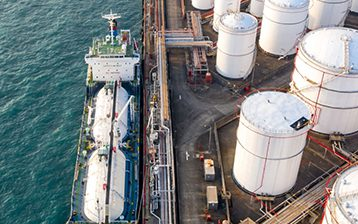Nigeria’s oil output experienced a decline in May, falling to 1.25 million barrels per day (mbpd) from April’s 1.28 mbpd, according to the Organisation of Petroleum Exporting Countries (OPEC). This drop follows a brief recovery period and raises concerns about the country’s oil production capacity. While OPEC reports 1.25 mbpd based on Nigerian authorities’ data, secondary sources suggest a higher output of 1.42 mbpd, indicating a clear downward trend.
Several factors contribute to this decline, including ageing oil fields, poor maintenance of crude oil terminals, shutdowns, and reduced investments in the upstream oil and gas sector, leading to significant revenue losses. Analysts at CSL research noted that despite government efforts to reinforce pipeline surveillance and combat oil theft, results have been slow and inconsistent.


Oil theft and pipeline sabotage have been major challenges for President Bola Tinubu, affecting government finances and limiting output and exports. Foreign Direct Investment (FDI) in the sector fell to under half a billion dollars in the first half of 2023, far from the peak of $22.5 billion in 2019. An oil executive highlighted that Nigeria needs $25 billion annually to reach a production target of 2 million barrels daily.
In the 2010s, Nigeria attracted significant FDI, particularly in 2014 when inflows exceeded $22.1 billion, leading to increased crude production and an average output of 2.2 mbpd. However, the collapse of oil prices in August 2014, coupled with security issues and militant attacks in the Niger Delta, led to a decline in investor confidence and production levels. The security situation has worsened since, further tarnishing Nigeria’s appeal.


Leave A Comment